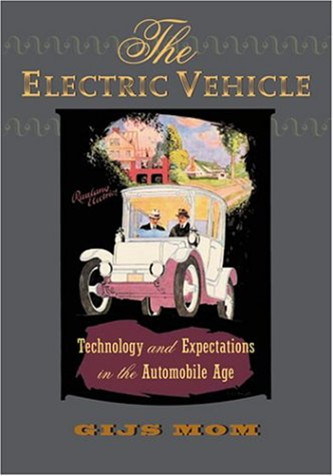
|
The Electric Vehicle: Technology and Expectations in the Automobile Age
Gijs Mom
Recent attention to hybrid cars that run on both gasoline and electric batteries has made the electric
car an apparent alternative to the internal combustion engine and its attendant environmental costs and
geopolitical implications. Few people realize that the electric car—neither a recent invention nor a
historical curiosity—has a story as old as that of the gasoline-powered automobile, and that at one time
many in the nascent automobile industry believed battery-powered engines would become the dominant
technology. In both Europe and America, electric cars and trucks succeeded in meeting the needs of a wide
range of consumers. Before World War II, as many as 30,000 electric cars and more than 10,000 electric
trucks plied American roads; European cities were busy with, electrically propelled fire engines, taxis,
delivery vans, buses, heavy trucks and private cars.
Even so, throughout the century-long history of electric propulsion, the widespread conviction it
was an inferior technology remained stubbornly in place, an assumption mirrored in popular and scholarly
memory. In The Electric Vehicle, Gijs Mom challenges this view, arguing that at the beginning of the
automobile age neither the internal combustion engine nor the battery-powered vehicle enjoyed a clear
advantage. He explores the technology and marketing/consumer-ratio faction relationship over four
"generations" of electric-vehicle design, with separate chapters on privately owned passenger cars and
commercial vehicles. Mom makes comparisons among European countries and between Europe and America.
He finds that the electric vehicle offered many advantages, among them greater reliability and
control, less noise and pollution. He also argues that a nexus of factors—cultural (underpowered and less
rugged, electric cars seemed "feminine" at a time when most car buyers were men), structural (the
shortcomings of battery technology at the time), and systemic (the infrastructural problems of changing
large numbers of batteries)—ultimately gave an edge to the internal combustion engine. One hopes, as a new
generation of electric vehicles becomes a reality, The Electric Vehicle offers a long-overdue reassessment
of the place of this technology in the history of street transportation.
- Paperback: 423 pages
- Publisher: JHU Press
- Language: English
- ISBN-10:
- ISBN-13:
|
|

